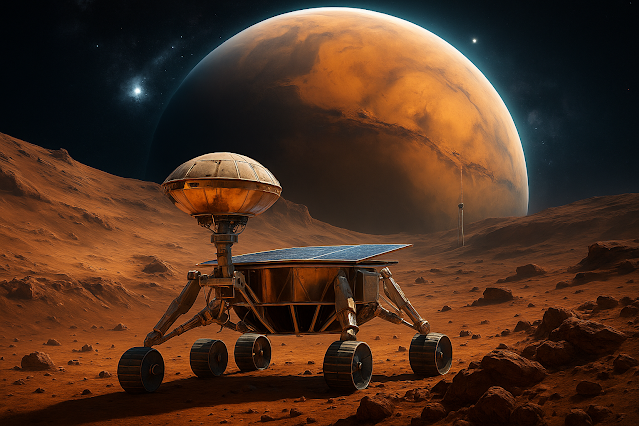AI: The Future of Asteroid Landings!
Future space exploration increasingly targets small celestial bodies such as asteroids, but these missions confront substantial challenges due to unknown environmental dynamics and limited prior knowledge. Ensuring a safe and precise landing on these irregular bodies requires highly intelligent and adaptable autonomous systems. The presented study proposes a robust adaptive guidance framework that synergistically combines meta-reinforcement learning with Monte Carlo Tree Search (MCTS) to meet these demands. The approach aims to accelerate the learning process while enhancing adaptability to uncertain, dynamic asteroid environments. Through simulations, this methodology demonstrates high robustness and reliability, making it a promising direction for next-generation space missions.
Meta-Reinforcement Learning for Space Robotics
Meta-reinforcement learning (meta-RL) is central to the proposed guidance strategy, as it enables rapid generalization across varying asteroid environments. By embedding a recurrent neural architecture, the system effectively perceives changes in system parameters during runtime. This dynamic perception facilitates adaptation without retraining, a key requirement for planetary exploration where prior data is scarce or unreliable. The use of meta-RL in this context marks a significant evolution in how autonomous agents can learn "how to learn" in space, offering a scalable solution to multi-mission scenarios.
Monte Carlo Tree Search in High-Uncertainty Guidance Tasks
MCTS has been utilized to optimize decision-making processes where outcomes are uncertain and rewards are delayed, which aligns well with the complexities of asteroid landing tasks. Within the proposed framework, MCTS is not only used as an optimization algorithm but also as a means to deeply explore and evaluate potential guidance policies. Its capacity to handle high-latency reward structures makes it uniquely suited for long-horizon problems like trajectory planning under gravitational anomalies or surface disturbances.
Double Progressive Widening for Policy Refinement
To address the curse of dimensionality in state and action spaces, the study introduces double progressive widening (DPW) modifications into the MCTS process. DPW strategically balances exploration and exploitation by controlling the branching factor of the tree, thereby enhancing search efficiency and policy diversity. This augmentation ensures that even in highly uncertain or data-sparse situations, the policy space remains sufficiently rich to discover feasible and robust landing strategies.
Simulation Framework and Performance Evaluation
The proposed methodology is validated through extensive numerical simulations across diverse asteroid models with varying gravity profiles, topographies, and rotational dynamics. The performance is assessed based on landing accuracy, stability, computational cost, and robustness to unseen perturbations. The results highlight the framework’s superior adaptability and robustness compared to conventional guidance systems, validating its potential for real-time application in asteroid missions.
Future Research Directions in Autonomous Space Guidance
While the results are promising, future research can further enhance the framework by incorporating onboard real-time learning capabilities, integrating additional sensor data for better environmental modeling, and extending the method to cooperative multi-agent landing scenarios. There is also potential to generalize the meta-RL/MCTS framework to other planetary bodies such as comets or moons with irregular dynamics. Advancements in quantum computing and neuromorphic hardware may also play a role in scaling these methods for flight-ready onboard systems.
Technology Scientists Awards




Comments
Post a Comment